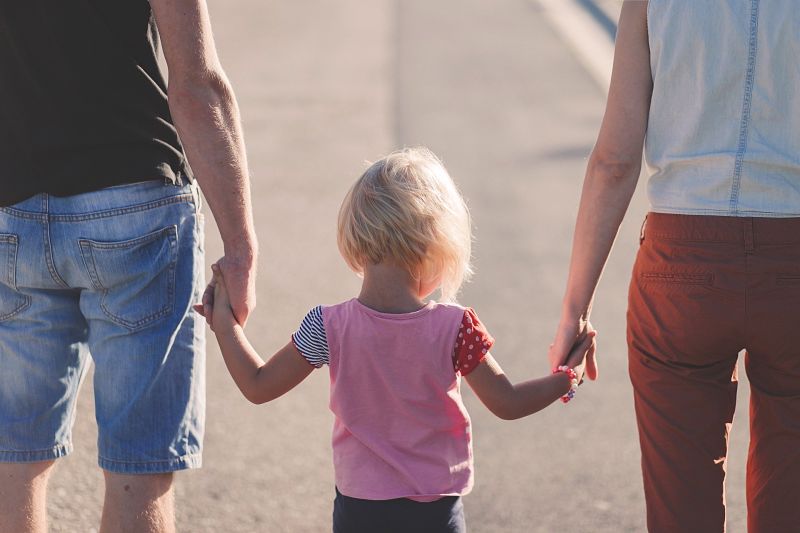Well, hello Corona!
What began as the report I tried to ignore from the school nurse, of this crazy virus in China, has turned into something every single one of us in the WORLD is being affected by. If ever there was a time to watch human behavior, it is now. People are freaking out. People are plotting deaths over toilet paper. People are stocking mac n’ cheese and pinto beans and tomato soup for days!
Here’s the thing: children are not exempt from the hysteria. We forget that. Yesterday, I arrived to work and found my friend Liz on the sidewalk, during the firedrill, as one does. She is the social worker in our elementary building, and I am the psychologist and I was feeling a burden. I shared with her that I think we need to do a better job of supporting the mental health and well being of our students. So, she and I put something together for our district, and I want to share some of the main points here, with all of you. (Hey friends – find Liz on Instagram at @superliz19 – she’s fantastic!)
Let’s get to it then:
How Can You Help Your Child Stay Chronically Well During the COVID-19 Outbreak?
(I have summed up points of articles from the CDC and National Association of School Psychologists – Please see the links below, or click above, and reference them as needed)
1 – Calm Down and Chill OUT
This is easier said then done, BUT, what you show as a response to stress is what they will internalize and replicate. If you are running around the house, freaking out because you are on the last roll of toilet paper, your kids are going to also start overreacting to everything as well. (Also – I mean – worse comes to worse – tear up those old t-shirts from the last 25 vacations you’ve been on?!)
A suggestion: instead of telling them things are closing because the virus is so bad and killing people, maybe just change your language to, “places are closing to keep us safe, and to keep the virus from spreading”. Which is true. Which is what everyone is forgetting.
To respond effectively in times of crisis, we must try to avoid panic. It literally makes us stop thinking correctly and we need as many clear minds as possible right now, am I right?!
2 – Communicate
Repeat after me: Everything is fine. You may not believe it. In fact, “everything is fine” has been my sarcastic mantra for my past year of not so fineness. And of course, we can never predict what is going to happen.
BUT your children are looking to you to help them navigate this, and if you can give them a home base that is grounded and protected, this will help them to center their feelings and emotions. (oh and hey – this is great advice for you too).
Now, if someone you know is sick, or if things are very much not fine, it is important to be truthful. Tell them the truth, but give them some hope. (see “control” below for more on this)
Additionally, talk to them about the virus.
Ask them what they already know.
Ask what they have heard on the news.
Ask if they have questions.
Ask how they feel about it.
Some kids may not have any fear and you don’t want to create it in your questions, so again- just be chill. Ask them how they are feeling about things, and if they say they are fine, don’t plant any fear in your questions, if you can help it. My friends Liz found this video from brainpop.com, which is an amazing resource to explain COVID-19 in an age appropriate way (I actually learned more about the virus itself in this video than I have in weeks of media coverage).
If they are scared or fearful, check out this link here on how to deal with stress and fear.
3 – Control What You Can (Let Go of the Rest!)
Let your small people know that it is wise to control what we can. Things like: washing our hands, keeping our hands off our face, following quarantines, and limiting media exposure.
The rest: simply not up to us.
A fun game for hand washing: tell your kids to pick a song – I was using Happy Birthday repeated twice and now my son is singing some weird thing he made up at school, but either way, get them singing and have them sing it while they wash their hands. If it’s 20 seconds or more, the germs are gone and everyone is happy as a corona free clam.
4 – Create Consistency
Listen. Things are weird. Schools are closing. Businesses are closing. Everything is closing. If it feels weird to you – it feels weird to them.
We won’t be able to continue on with routines as usual, but, kids need structure, and so do we. As much as you can, work in a new routine. You could even call it something cute like, “The ———’s Quarrantine Routine!”. It will likely involve excessive Netflix binging (with some e-learning if your district is so inclined) but, simply having SOMETHING to rely on is going to do everyone some good.
5 – Cuddle
This was not on the CDC website, nor any other website, but I think it is necessary. Whether you have children, a dog, or a friendly neighbor, cuddle them.
Love them.
My honest opinion is that half of the icky feeling we all have right now is the fear of disconnection. We are hardwired to need connection, so the thought of being alone, sick, or simply alone and not sick, with weeks before we can all get together again, is just plain terrifying (maybe more for us extroverts than introverts).
Either way, finding physical closeness with your kids and loved ones, is going to do everyone some good. Be affectionate. Tell them you love them, and turn what could be a scary experience into something they will remember for the rest of their lives, but for all the right reasons.
Hopefully they will remember it as a time you came together as a family and, if you’re lucky, COVID-19 will just be a minor part of the story.
Because as far as I’m concerned, a virus does not get to write my story – just as a chronic illness does not get to write my story.
Chronic illness or pandemic: we can still choose to live chronically well.
I hope this helps you navigate these unpredictable seas. Check out the resources below for more and hit me up with any questions or support you may need!
Talking with children about Coronavirus Disease 2019. (2020, March 9). Retrieved from https://www.cdc.gov/coronavirus/2019-ncov/community/schools-childcare/talking-with-children.html
Talking to Children About COVID-19 (Coronavirus): A Parent Resource. (n.d.). Retrieved from https://www.nasponline.org/resources-and-publications/resources-and-podcasts/school-climate-safety-and-crisis/health-crisis-resources/talking-to-children-about-covid-19-(coronavirus)-a-parent-resource
Tips for Coping with Stress|Publications|Violence Prevention|Injury Center|CDC. (2019, September 3). Retrieved from https://www.cdc.gov/violenceprevention/suicide/copingwith-stresstips.html
Coronavirus. (n.d.). Retrieved from https://www.brainpop.com/health/diseasesinjuriesandconditions/coronavirus/

